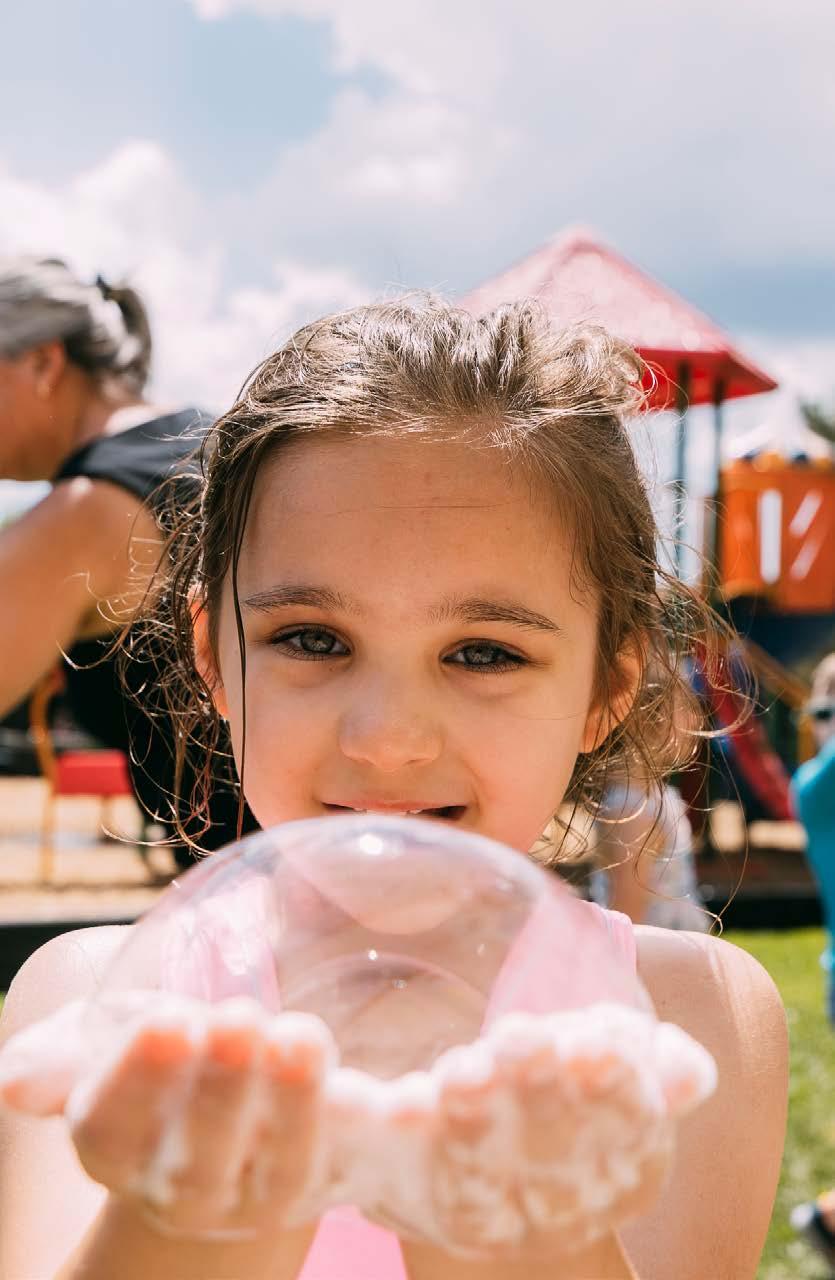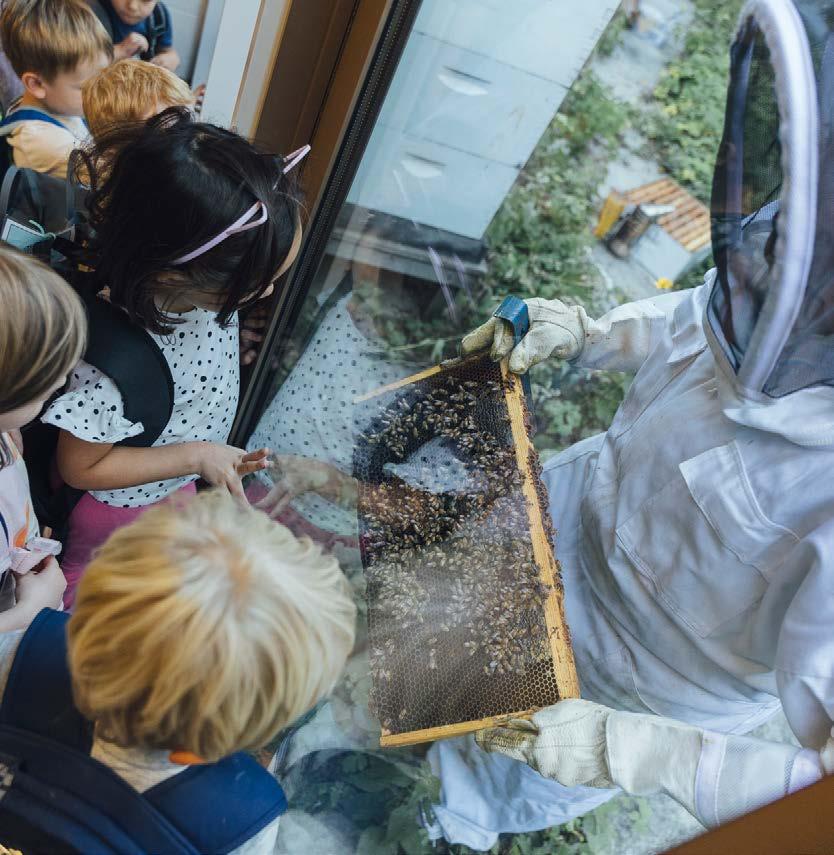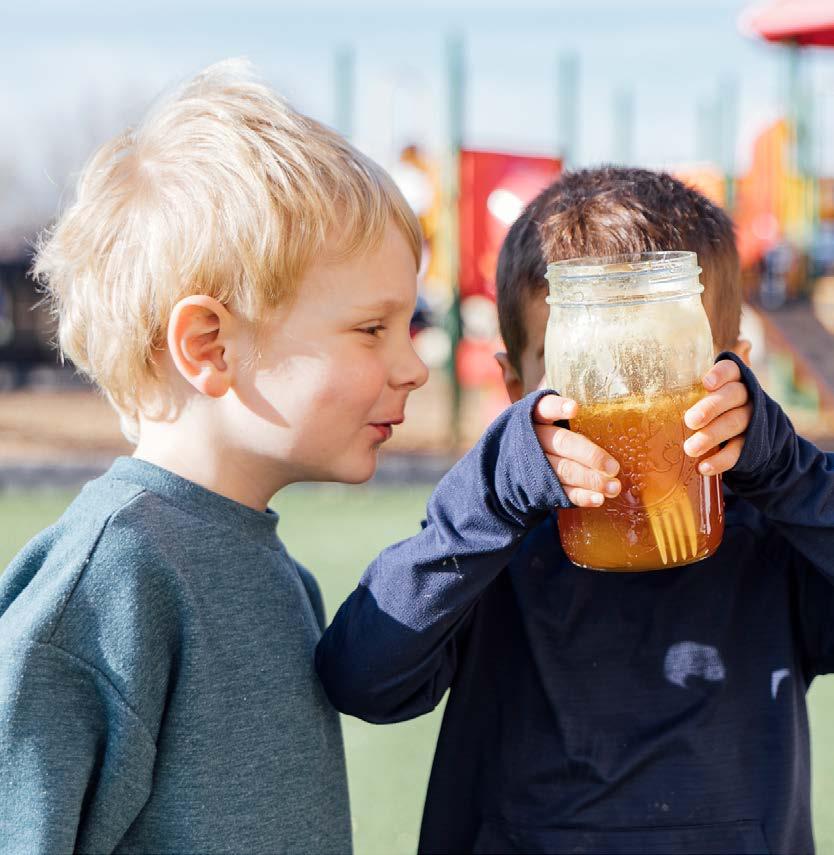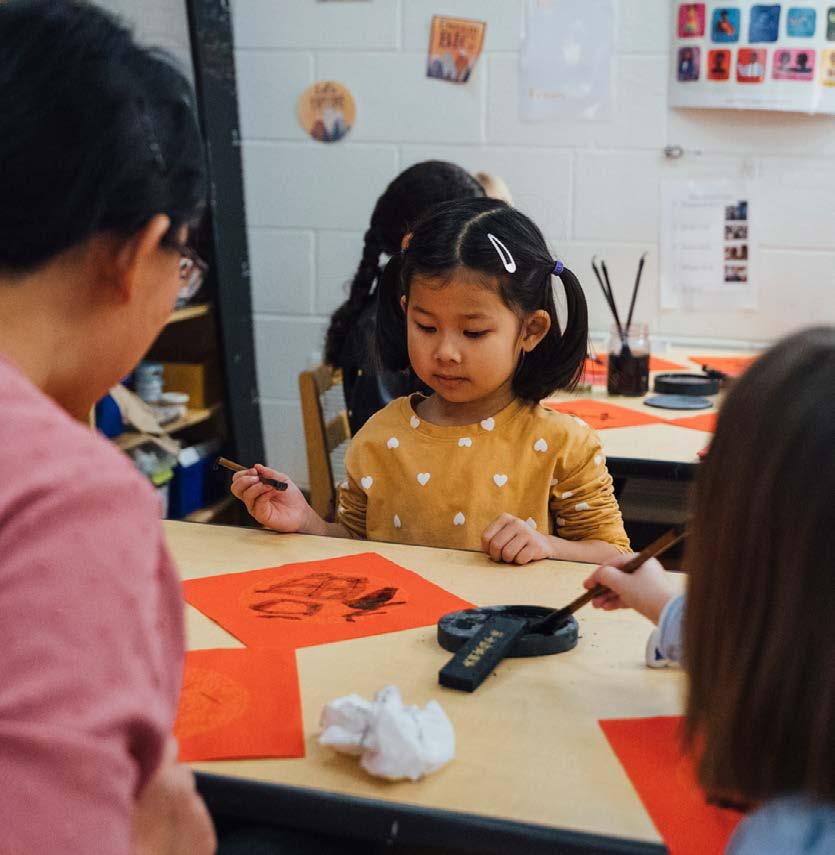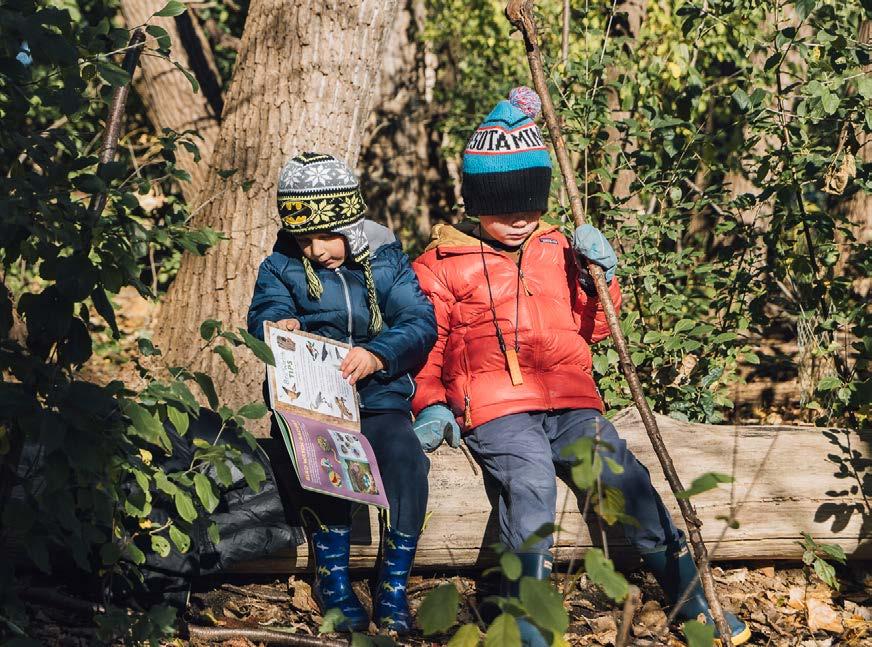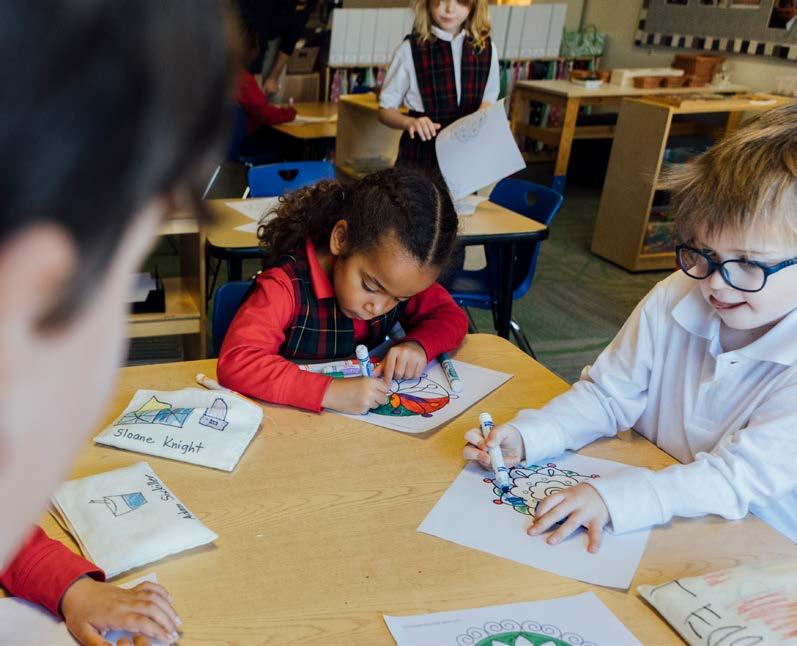Early Childhood
WE BELIEVE...
• play is the primary context for learning.
• caring relationships allow for healthy risk taking.
• when the whole child is engaged, true learning can occur.
• learning is a dynamic process that occurs when children encounter the world around them.
• in providing children time and space to make discoveries and live out their big ideas.
• in diversity, equity, and inclusion.
• creativity is seen throughout the learning process and within the product.
• each child is unique and valued.
Program Areas
CREATIVITY AND THE ARTS
In the early years, children are developing skills in the arts that allow them to explore a variety of ways to be creative and express themselves.
LANGUAGE, LITERACY, AND COMMUNICATION
During these years, children work on both their receptive language — listening and understanding — and their expressive language — communicating and speaking. In addition, they explore writing, emergent reading, and both Chinese and Spanish in preschool and kindergarten before choosing a World Language track in first grade.
MATHEMATICS
Mathematics in Early Childhood includes number knowledge, measurement, patterns, geometry and spatial thinking, and data analysis.
PHYSICAL AND MOVEMENT DEVELOPMENT
A child’s physical health is an important component for the optimal development of the whole child and impacts learning, social and emotional well-being, and the realization of a child’s full potential.
SCIENCE
As children follow their curiosity in exploration, they build on their approaches of learning. As they discover new things, they are delighted and motivated to continue trying new things and learning more, including through observation and questioning, investigating, and experimenting.
SOCIAL AND EMOTIONAL DEVELOPMENT
All learning is based on the foundation of children’s healthy social and emotional development. In Early Childhood, children learn self and emotional awareness, self-management, and social understanding of relationships.
SOCIAL SYSTEMS
Children begin to understand social systems in Early Childhood, including community, people, and relationships; identity development and acceptance; changes over time; the environment; economics; technology; and exposure to world religions.
